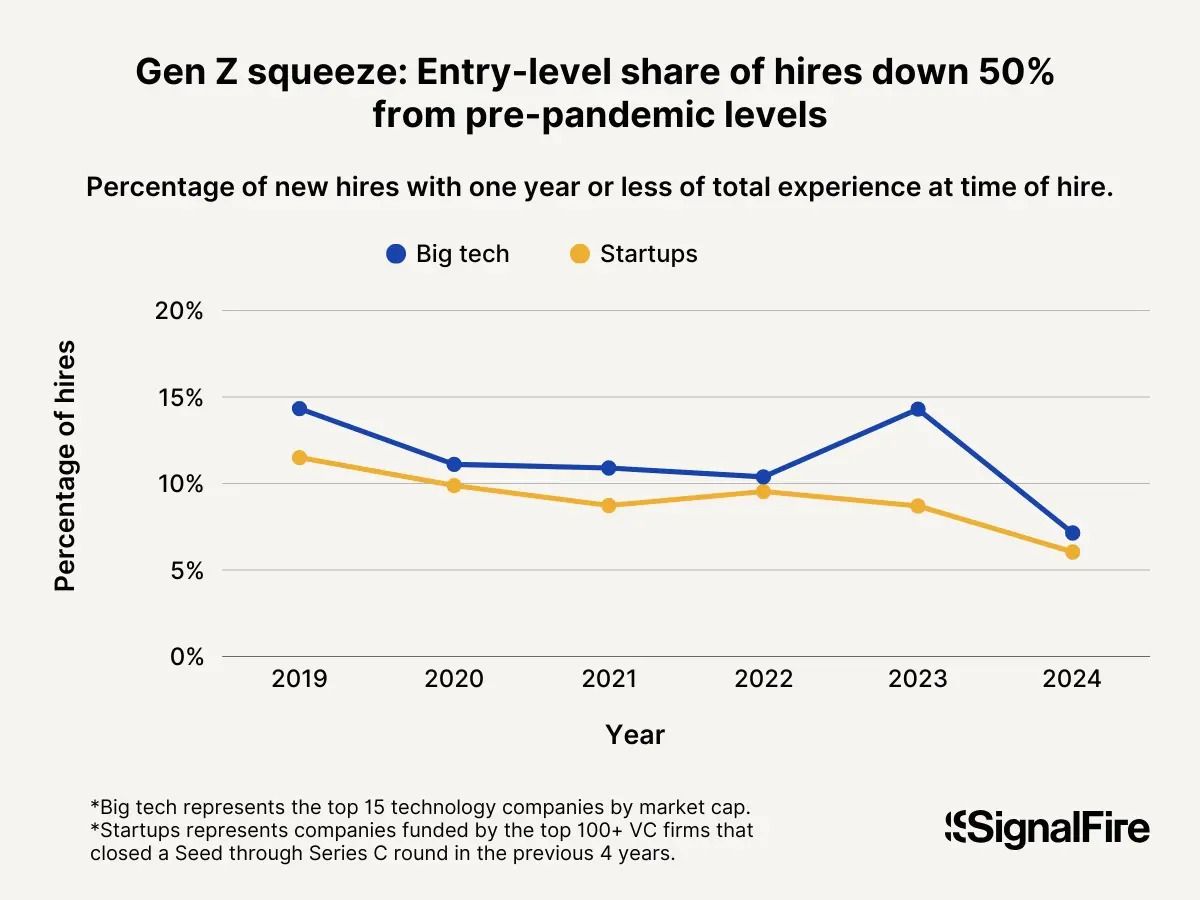- Roko's Basilisk
- Posts
- Google's $2.4B Code Bet
Google's $2.4B Code Bet
Big Tech’s chasing code-gen gold. Google bags Windsurf. Entry-level coders beware.
Here’s what’s on our plate today:
💰 Google writes a $2.4 B check for Windsurf, code-gen startups hit peak hype
🗳️ Poll: Do AI dev agents spell the end of entry-level coding jobs?
📰 Quick hits: Musk pushes Tesla vote to fund xAI, Gibran raises $2.6M for nature-inspired AI, OpenAI delays model, and teases AI browsers to rival Chrome
💡 Roko Pro Tip: Guardrail your junior devs with tests before the bots arrive
Let’s dive in. No floaties needed…

Stay at the forefront with daily Memorandum tech insights.
Every edition of Memorandum goes beyond the headlines, offering exclusive analysis and actionable insights that empower tech leaders to respond proactively.
From disruptive regulatory changes to cutting-edge research breakthroughs, Memorandum highlights the stories that demand your attention. Equip yourself with context, clarity, and expert commentary to pivot swiftly when opportunities arise.
Stay agile and confident in an industry where yesterday’s news can reshape tomorrow’s market.
*This is sponsored content

The Laboratory
Google’s $2.4 billion deal with Windsurf highlights the golden era for code-gen startups
When OpenAI released its AI chatbot in 2022, there was a lot of speculation around how artificial intelligence would reshape the workplace. Investors bet billions, expecting handsome returns from AI deployment. However, returns have been slower than anticipated given the massive investments in rapid AI adoption.
While returns are slow, Big Tech continues to pour its heart and soul into developing even more capable LLMs to power their AI models, and startups that bet on code-generation tools are going through a golden era.
Recently, Google hired several key staff members from AI code-generation startup Windsurf, formerly Codeium. As part of the deal, Google will pay $2.4 billion in license fees to use some of Windsurf's technology under non-exclusive terms, and will not take a stake or any controlling interest in the startup. Additionally, Windsurf CEO Varun Mohan, co-founder Douglas Chen, and select members of the research and development team will join Google's DeepMind AI division. And Google was not the only one interested in the startup; reports suggest that OpenAI was also looking to acquire the startup, which specialises in building AI tools to boost developer productivity and accelerate software development.
The rapid rise of “code-gen” startups
While the larger public was busy chatting with ChatGPT, generating images on Gemini, and generating videos on Firefly, “code-gen” startups were commanding sky-high valuations.
Reuters reported that OpenAI offered $3 billion to acquire Windsurf, though the deal ultimately fell through. Cursor, another code-generation startup based in San Francisco, raised $900 million at a $10 billion valuation in May 2025. The company, with just 60 employees, went from zero to $100 million in recurring revenue by January 2025, less than two years since its launch.
Windsurf, founded in 2021, launched its product in November 2024 and reportedly reached $50 million in annualised revenue shortly after. Both startups were spending more than they earned, making them prime acquisition targets for Big Tech. OpenAI reportedly approached Anysphere, the company behind Cursor, before Windsurf.
Their popularity allows these startups, despite reliance on foundational models developed by OpenAI, Anthropic, or DeepSeek, to secure their future even if acquired by Big Tech.
How AI coding tools are reshaping tech careers
The impact of tools that use artificial intelligence is being felt across all industries, but notably, their adoption threatens entry-level coding positions involving repetitive tasks.
According to Signal Fire, a venture capital firm tracking tech hiring, new graduate hiring dropped 50% compared to pre-pandemic levels. New hires with less than a year of experience were hit hard, with hiring falling by 24% in 2024. This drop is being attributed to tasks once assigned to entry-level software engineers, which are now being fulfilled in part with AI. And code-gen startups are playing an important role.
Startups like Cursor, Qodo, Cognition AI, and Windsurf facilitate more contextual, fluent, and autonomous interactions with LLMs, developing tools capable of supplementing or even replacing expensive human engineers.
Cursor serves as an AI-enhanced code editor that automates programming workflows and accelerates development, offering background AI agents, a web-based interface, and Slack integration to assign tasks and monitor progress. Windsurf similarly provides an AI coding platform featuring an agent called 'Cascade' that supports writing, refactoring, and executing code.
These startups’ strength lies in effectively leveraging Big Tech's LLMs to create practical, market-ready tools that users and enterprises are willing to purchase immediately.

Besides tools, Big Tech eyes top talent and IP
Though the prospect of getting their hands on tools with high-adoption rates is a good bet, Big Tech is after more than the existing users.
Google’s deal with Windsurf will help it advance its AI development tools by giving it a proven, production-ready coding agent platform, along with the team that built it, which includes some of the most experienced engineers in AI-powered developer tooling. Windsurf had already built Cascade, a developer agent capable of writing, editing, testing, and running code. By acquiring the IP and bringing Windsurf CEO Varun Mohan and much of the engineering team into Google DeepMind, Google could soon release a developer experience rivalling GitHub Copilot or OpenAI's Devin.
OpenAI’s Devin and Codex APIs are pushing into more autonomous development territory. By integrating Windsurf’s tech, Google avoids being left behind in one of AI’s most valuable verticals.
Strategic timing benefits both Google and Windsurf
Google stands to gain a lot from its deal with Windsurf, and the startup will get to enter the “next phase.” An interesting aspect of the deal is the timing.
In May 2025, Windsurf announced its first in-house AI models optimized specifically for software engineering, signaling a move away from dependence on external foundational models. Startups like Cursor are also working to pre-train their large frontier-level models, which could enable the company to not have to rely on foundation model companies.
Since training proprietary AI models is costly, startups face significant challenges. Google's partnership provides Windsurf not only with continued operational capability but also a supportive partner for future model development.
A defining moment for AI-driven software
The Google-Windsurf deal represents a pivotal milestone for code-generation startups, showcasing investor confidence and highlighting developer automation's strategic importance in the AI era.
Although generative AI applications like chatbots and image-generation tools have captured public interest, code-generation startups have quietly emerged as highly promising and commercially viable businesses. With proven products, strong user traction, and enterprise adoption, these startups are addressing a real and immediate need: automating repetitive and entry-level coding tasks, and in some cases, entire software development cycles.
For Google, the Windsurf deal means catching up to rivals like Microsoft and OpenAI in embedding AI into developer workflows.
For Windsurf and the larger code-gen startup ecosystem, this deal underscores the growing influence and strategic value of code-gen startups, positioning them not merely as niche innovations but central players shaping the future of software development. Partnerships or acquisitions with Big Tech will give these companies the stability and resources they need to scale, and Big Tech will secure its front-row seat.


Quick Poll
Is AI code generation a net plus or a pink slip for new engineers? |

Bite-Sized Brains
Elon Musk proposes a Tesla shareholder vote to invest in xAI—after SpaceX pitched in $2 billion to fund Musk’s AI startup, xAI seeks even more cross-company backing.
AI research startup Gibran raises $2.6 million seed—Bengaluru‑based innovators aim to build adaptive, nature‑inspired AI systems.
Tesla to hold vote on xAI investment—Musk says he’s in favor; shareholders will decide on integrating Tesla funds with his AI venture.
OpenAI valued at ~$300 billion but facing growing pressure—Meta, Google, Amazon, and xAI are all racing ahead; OpenAI delayed its new open‑weight model due to safety concerns.
OpenAI & Perplexity launching AI browsers to challenge Chrome—both are building browsing experiences with embedded AI agents to tap into the $300 billion search market.

Roko Pro Tip
 | 💡 Before you panic about AI stealing junior seats, lock in habits that bots can’t fake: write crisp unit tests, document edge-cases, and review pull requests with an eye for system design, not syntax. The engineer who directs the agent still wins. |

The 2025 guide to smarter global hiring.
Curious how global hiring can give you a competitive edge? The Latam Talent Advantage Guide shows how companies are cutting hiring costs without compromising talent.
Discover why Argentina, Brazil, and Colombia are becoming the go-to regions for elite tech and product talent and how hiring internationally can help you save up to 70% on salaries.
Learn how global hiring can help you fight back against rising tariffs, shrinking margins, and local talent shortages. Get the data and hire smarter today.
*This is sponsored content

Prompt of the Day
 | Racing a last-minute feature? Paste this.“In <LANGUAGE>, add <FEATURE> without breaking existing tests. List: 3 key files, 4-step plan, code snippet, and quick test.” |

Treats to Try
Windsurf Cascade – join the wait-list to see why Google paid billions.
Replit Ghostwriter Agents – autonomous tasks inside the browser IDE.
Amplication AI Plugin Builder – generate boilerplate Node services from plain English.

Rate this edition
What did you think of today's email? |




